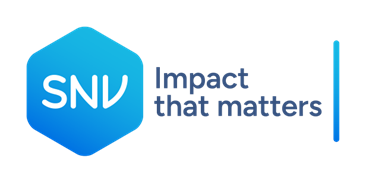Sorry, your search did not match any of our live jobs
We suggest that you:

JOB SUMMARY |
|
| Company | SNV Ghana |
| Industry | NGO/IGO/INGO |
| Category | Land Economy ... |
| Location | Ghana |
| Job Status | Contractor/Co... |
| Salary | GH¢ |
| Education | Qualified |
| Experience | N/A |
| Job Expires | Oct 08, 2024 |
| Contact | ... |
| |
|
|
Company Profile SNV is a not-for-profit international development organisation that applies practical know-how to make a lasting difference in the lives of people living in poverty. We use our extensive and long-term in-country presence to apply and adapt our top-notch expertise in agriculture, energy, and WASH to local contexts. SNV has an annual turnover of €130 million, over 1,250 staff in more than 25 countries in Africa, Asia, and Latin America. We are proud to be a not-for-profit organisation that uses project financing to implement our mission. This requires us to work efficiently and to invest in operational excellence. SNV has worked in Ghana since the 1992 and currently has offices in Accra, Tamale, and Nandom. For more information on SNV, visit our website: www.snv.org Job Description
Brief Background At SNV, we envision a world where, across every society, all people live with dignity and have equitable opportunities to thrive sustainably. We apply our strong foundations and technical expertise within and across three inter-related sectors of agri-food, energy, and water, which are critical to enabling people to lead dignified lives and thrive. Within and across these sectors, we work on three core themes: Gender Equality and Social Inclusion (GESI), climate adaptation and mitigation, and strong institutions and effective governance. Across these sectors and themes, we also focus on impact driven finance, digitalization, systems change, and youth. Global principles for responsible land-based investments such as the Voluntary Guidelines on Responsible Governance of Tenure (VGGT), and the Responsible Agriculture Investments (RAI) have been developed and accepted as relevant guide in the implementation of land-based investments, they have not fully addressed the risks and challenges land-based investments bring. Working with over 100 agribusinesses, the Centre for International Forestry Assessment (CIFOR) generated valuable insights into the type of business models and conditions that enable investors to better reconcile social, environmental, and economic interests. It, among others, found that while many investors are highly committed to innovating toward more impactful business models, most are confronted by large internal resource and capacity gaps. Only investors that succeed in closing this gap by forging cross-sector partnerships with government, civil society, assessment organizations and/or other agribusinesses are generally able to effectively create shared value. In view of the above challenges, SNV has joined up with CIFOR, ICRAF, LEI, and RECOFTC, to constitute a consortium that is implementing the Transformative Land-based Investment (TLI) project. The project seeks to address investors’ need for independent technical backstopping, partnership identification, development and brokering of support. United by common vision, yet each bringing unique skills and expertise, with a distinct collaborative advantage, mixing technical, developmental, public policy and value chain development expertise. The first phase of the TLI program (2022–2025) is supported by Swiss Development Cooperation. Noting that tradition and culture shape land tenure system and largely influence the norms around the application of laws and global principles, the TLI Project team seeks to assess the Gender Equality and Social Inclusion dimensions of Land Based Investments in agriculture and forestry in Ghana. The outcome of the GESI assessment will guide the TLI project team in mainstreaming GESI considerations in the implementation of the project and more specifically, in supporting selected Land Based Investors (LBIs) to enhance GESI perspectives in their models. The TLI team in Ghana is seeking the services of suitably qualified consultant/firm to conduct the above stated assignment. The consultant will therefore act as the multi-country consultant based in Ghana to be supported by 2 national GESI consultants in Ethiopia and Mozambique. The consultant must demonstrate the ability to hire and oversee local assessment team for the purposes of primary data collection and analysis from the LBIs. Consultancy Objective The purpose of the SNV-led multi-Country GESI analysis is to Conduct a GESI needs assessment with selected LBI Champions to ascertain and analyse GESI issues within land investment operations, with a minimum of 4 companies in Ghana, 3 companies in Ethiopia and 3 companies in Mozambique. The TLI project responds to Swiss Development Cooperation’s (SDC) commitment to a sustainable food system transition, as outlined in its Global Program for Food Security. This Program recognizes that such as transition demands an integrated, holistic approach that requires action across all four sustainable food system components, namely (1) enhanced global governance; (2) agroecological production; (3) inclusive agricultural and food market systems; and (4) healthy diets and nutrition. It is important that the assignment is understood within this context. The specific objectives of the assignment are outlined below:
Activity Details
Expected Deliverables:
All rights to resulting Intellectual Assets as knowledge output under the assessment assignment under the TLI project shall be solely owned by the SNV Transformative Land Investment (TLI) project. Required Skills or Experience Selection criteria: The proposal must demonstrate that it will have the personnel for the key positions that meet the following requirements:
How To Apply Sorry, job has expired.
Note
Please note, employers receive numerous applications per posting and will only shortlist the most qualified candidates. Also Jobsinghana.com is not involved in any decision made by an employer/recruiter and therefore does not guarantee that applications sent will result in a candidate being shortlisted/selected for that position. |